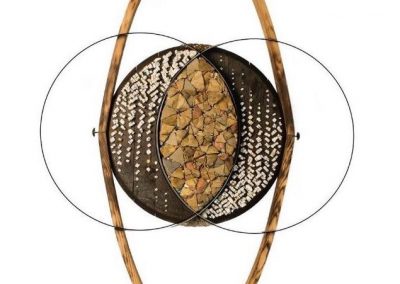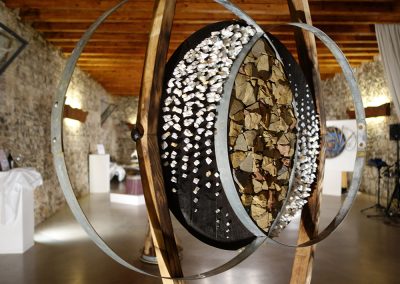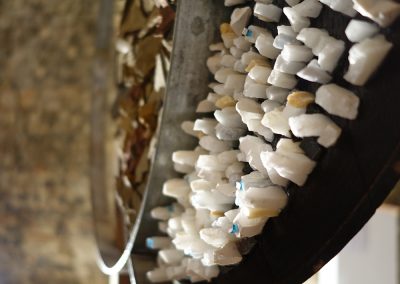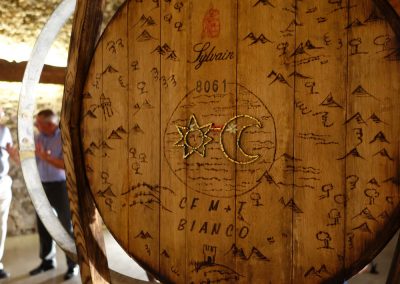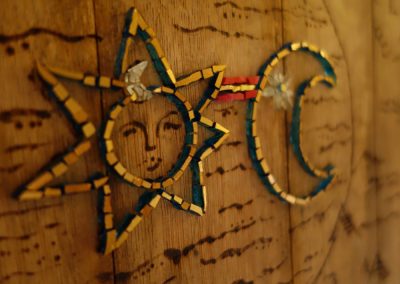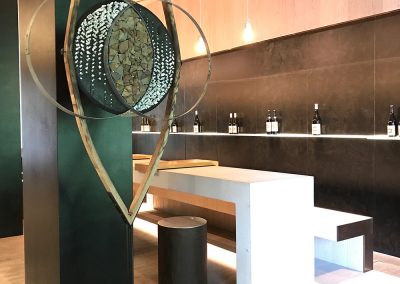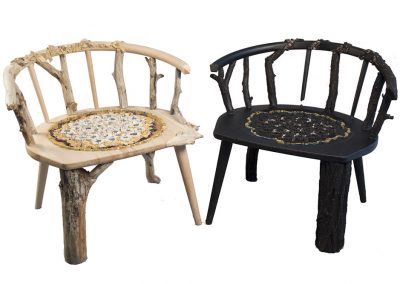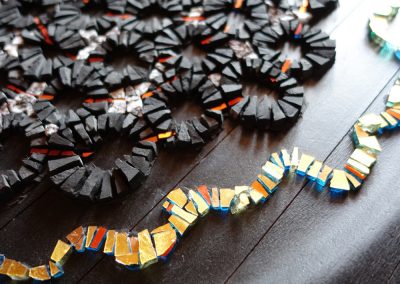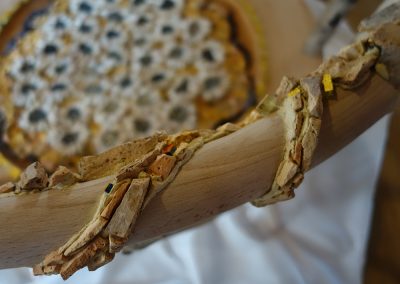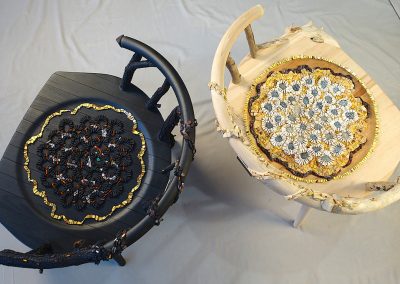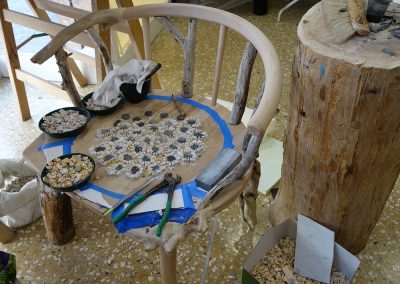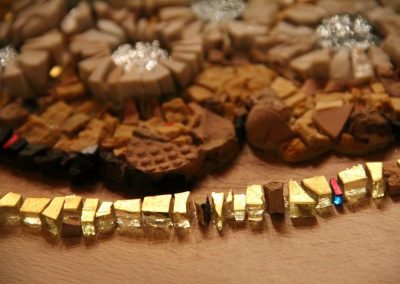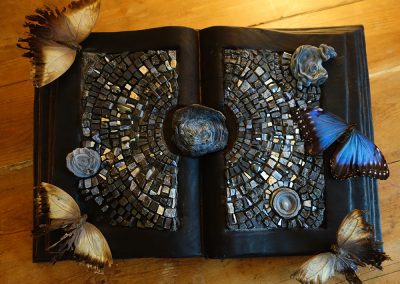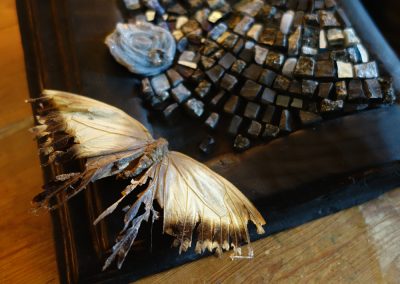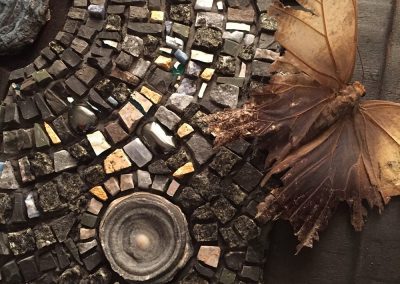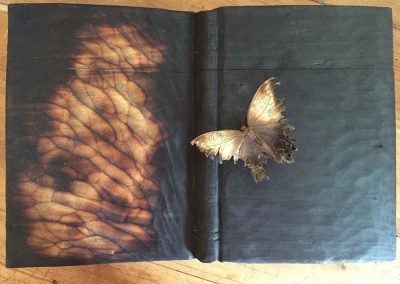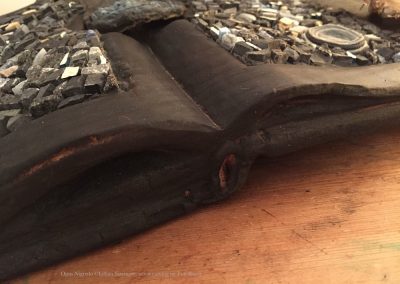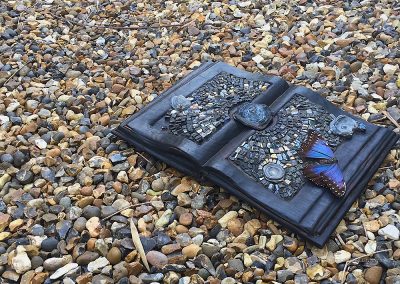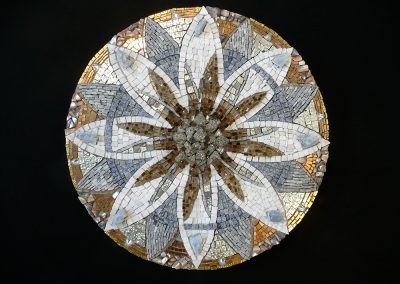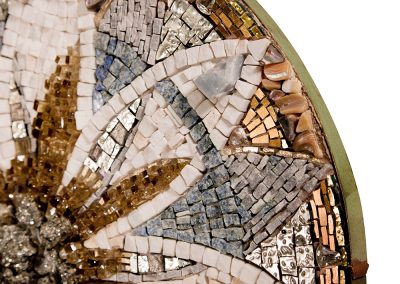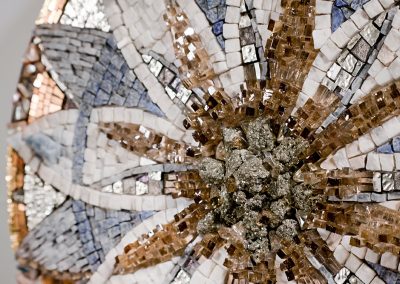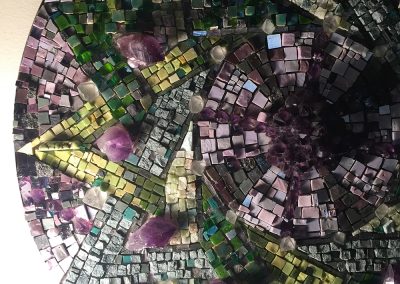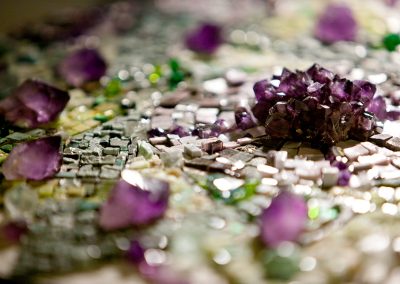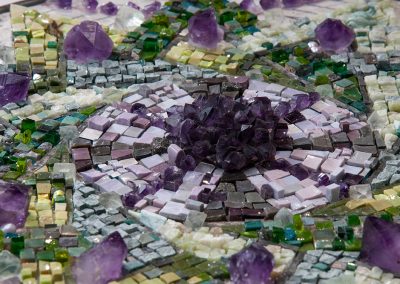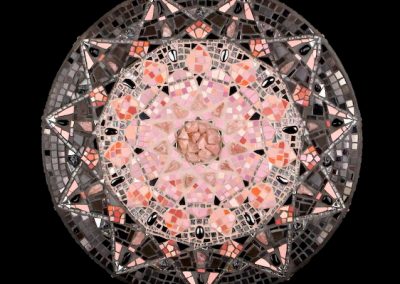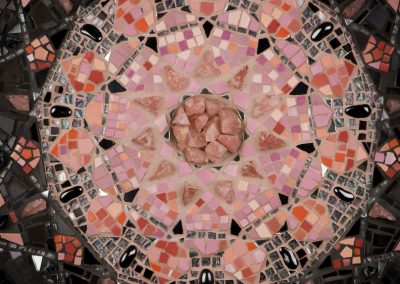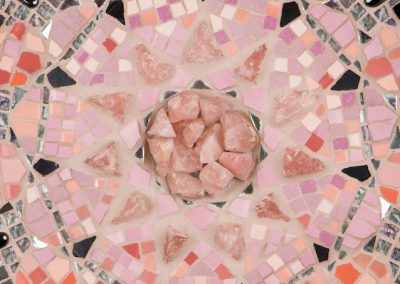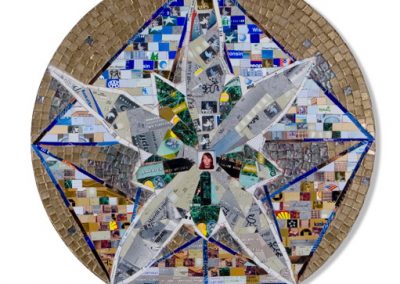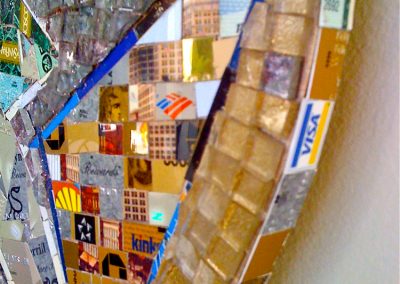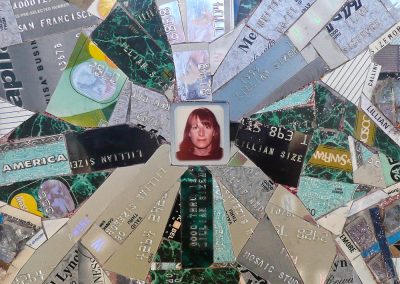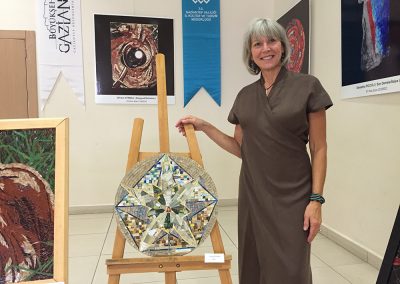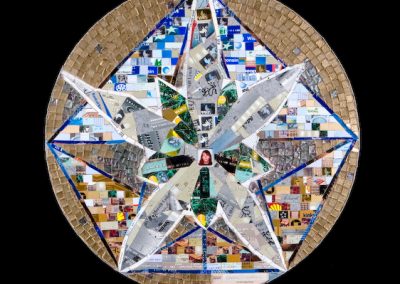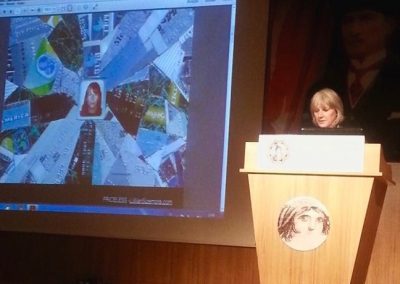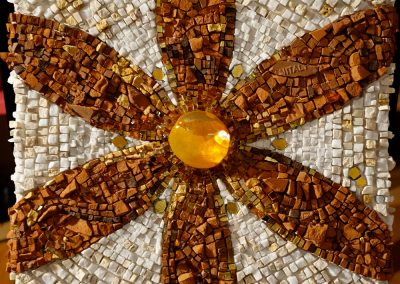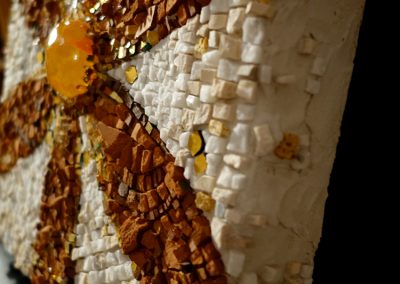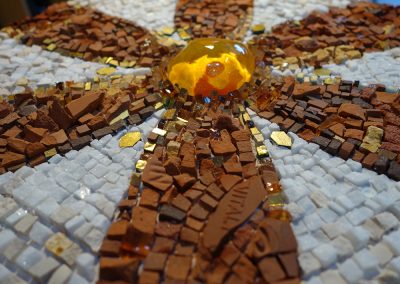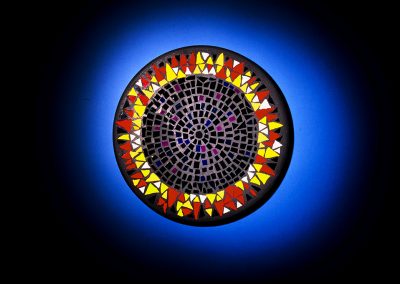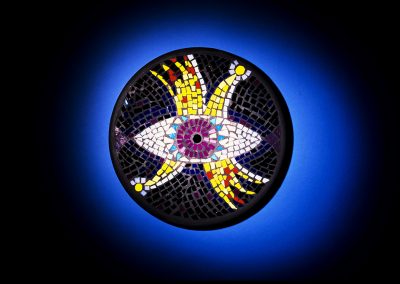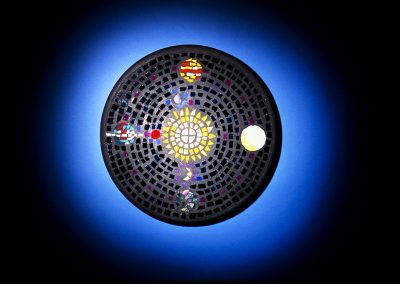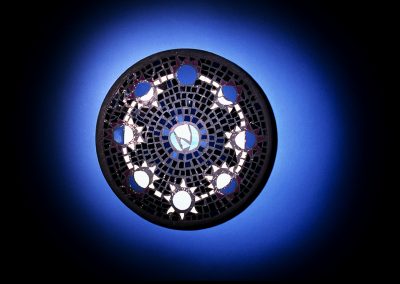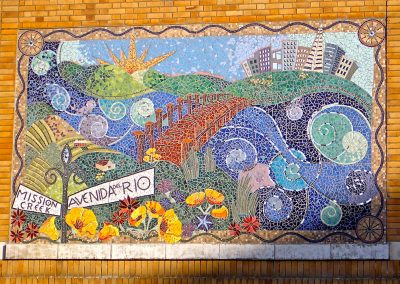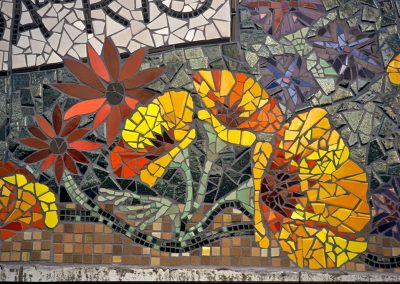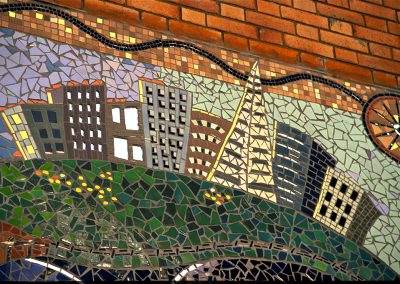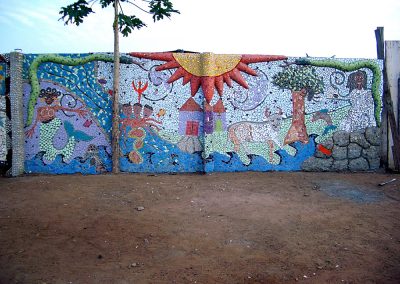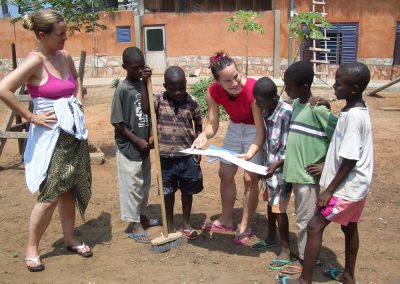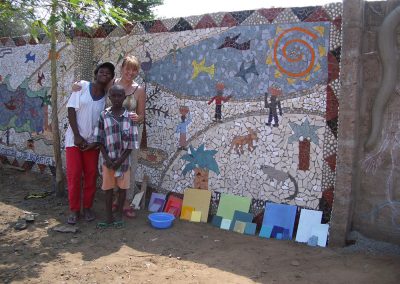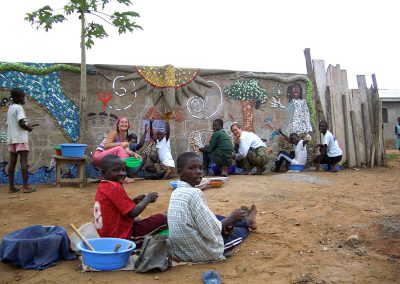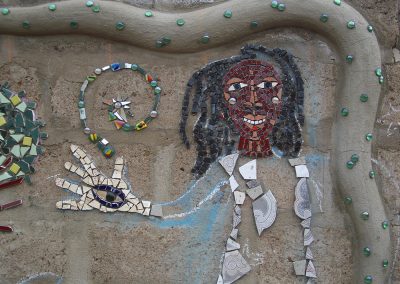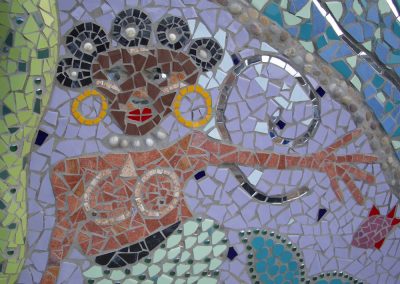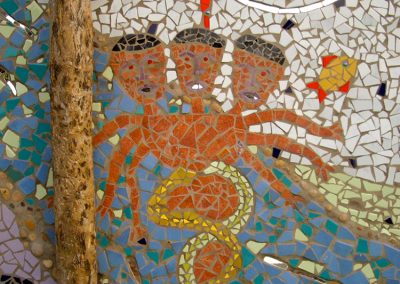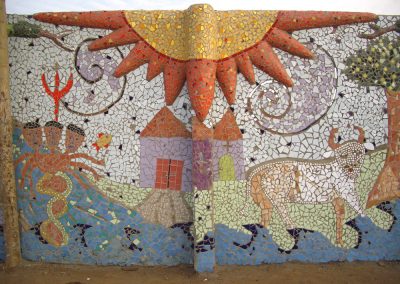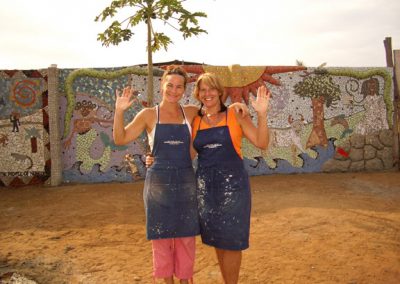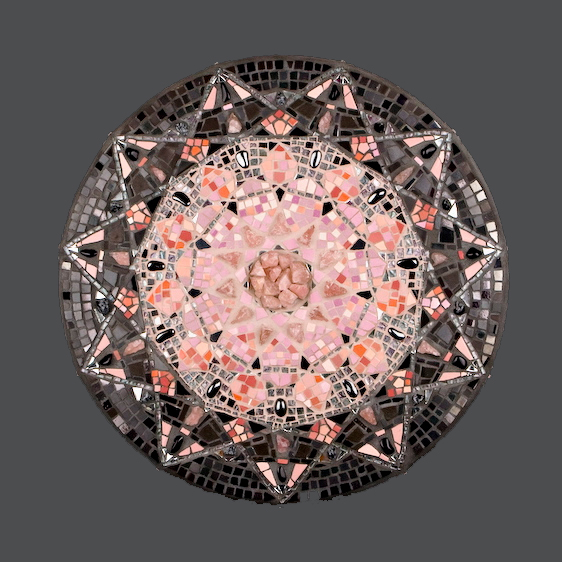ARTMAKING
Opus Albedo
In Alchemy, ‘albedo’ represents a scintillating whitening emerging from within the darkness. It is the purification stage, an integration of opposites. Geometric symbolism using the vesica pisces depicts this union. Made from a wine barrique, the work acknowledges wine as the most ancient of provisions. It is the ‘water of life’. The term ‘albedo’ is also used in climate science, describing the earth’s reflective and absorption capacities. Burning techniques employed in the making process reference the element of carbon. Created during the invitational residency with Clauiano International Mosaic Symposium 2nd. Ed., 19-30 June 2017, Friuli, Italy, Maestro Giulio Menossi, Director. The work is on view in the tasting room at Livio Felluga Winery, Sponsor.
Lotus Chairs
Opus Nigredo
A blackening, a burning, a decomposition.
A black blacker than black, and so into infinity.
Frozen tear drops on the page radiate toward pure crystalline light.
“…the End is where we start from…And any action
Is a step to the block, to the fire, down the sea’s throat
Or to an illegible stone: and that is where we start…”
T.S. Eliot The Little Gidding, Stanza V. from Four Quartets, 1943
Originally exhibited at the invitational Bibliomosaico, 4th Ed., 2015, Ravenna, Italy
Priceless
‘Priceless’ is a self-portrait made during the ‘San Francisco “Dot.Com Boom”. This period epitomized a 21st century Gold Rush, culminating in a hopeful migration of technology start-ups descending on the Bay Area in search of new wealth. From 1997 to 2003, I procured, used, paid off, and cut up every credit card assembled for this piece. The material of 22-karat gold smalti, with it’s perpetual value—a precious metal mined from the earth—seemed the only material worthy of accompanying the credit cards, whose value is synthetic and determined by the chimera of a free market economy. The five-fold pentagonal geometric design, with a distorted twist, symbolizes the fractal-holographic nature of living forms. The work was acquired in 2015 by the Zeugma Mosaic Museum, Gaziantep, Turkey.
